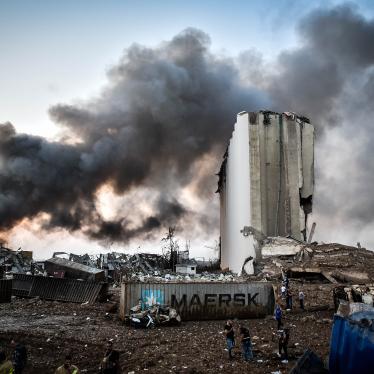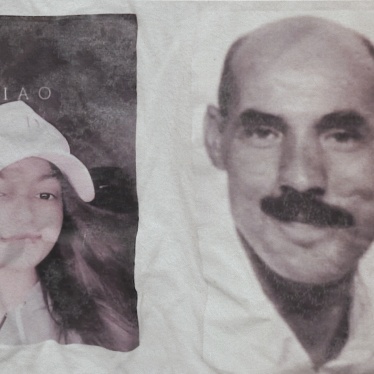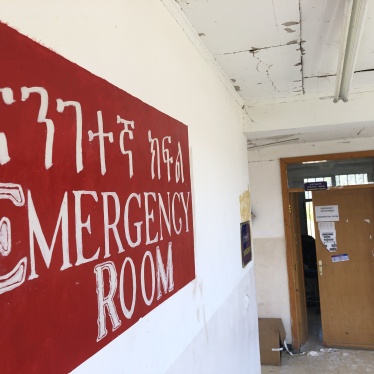“Syrians are the best people,” said the taxi driver as he looked at me in the mirror. “We in Egypt have always felt that Syrians and Egyptians are truly one people.”
The driver’s words were music to my ears, as I, an Egyptian of Syrian origin, sat in the back of the taxi heading to a meeting on the situation of refugees from Syria now in Egypt.
Refugees from Syria started flocking to Egypt two years ago to escape the conflict in their country, but things took a turn for the worse for them here this summer. The office of the United Nations High Commissioner for Refugees (UNHCR) has registered 125,000 out of an estimated 300,000 Syrians now in Egypt. Among them are an estimated 5,000 to 6,000 Palestinians who have also escaped from Syria, whom the Egyptian authorities have not allowed UNHCR to register.
With prospects of a solution in Syria fading, refugees from Syria in Egypt now face restrictive visa and security clearance requirements to enter Egypt. Before Mohamed Morsi was ousted in early July, Syrian passports allowed them unhindered access to Egypt.
All countries are free to set immigration and entry regulations, but it is the sudden change in procedures and public perceptions that have taken Syrians and Palestinians from Syria in Egypt by surprise. From difficulties in renewing residence permits, to struggling to survive in Cairo’s informal economy and pleading for seats in Egypt’s overcrowded public schools, many now feel they are an unwelcome burden. Sensationalist media reports exaggerating the presence of Syrians in the large Muslim Brotherhood sit-in at Rabaa have been one factor behind the military authorities’ decision to limit their access to Egypt.
Irresponsible incitement by renowned media figures also has helped turn public sympathy toward Syrians into hostility, which is what made my taxi driver’s warm comments such a welcome surprise. This barrage of hostile commentary, in addition to daily hardships, has led many refugees from Syria to jump on boats off Egypt’s Mediterranean coast heading to Europe, hoping for a better future. Authorities have arrested and detained some 1,500 such would-be migrants, many after their boats sank.
Security officials have told the detained refugees that they will be held indefinitely until they agree to leave the country, at their own expense. But refugees from Syria have limited options for where they can go, other than Syria. Palestinians, who hold only refugee travel documents, not passports, are particularly vulnerable. Their only option is to enter Lebanon on a 48-hour transit visa or return directly to war-torn Syria. Some 1,200 have already left Egypt despite fearing for their lives once they land at the other end. Another 300, including children, remain in detention weeks and months later at terribly overcrowded police stations, despite release orders by the prosecutor. And arrests continue, some as recently as November 4. Officials cite “national security concerns” when asked the reasons for this illegal detention.
When Human Rights Watch released a report that documented how Egypt has coerced these refugees to leave, government officials outright denied the facts. As a party to the 1951 Convention on Refugees and human rights treaties, Egypt is bound to adhere to the principle of non-refoulement, the prohibition against sending a refugee to a country where his or her life or freedom is at risk. One Foreign Affairs Ministry official called on Human Rights Watch to “find alternatives instead of criticizing Egypt.”
I am glad he asked. There are, in fact, a number of steps Egyptian authorities can take instead of forcing refugees from Syria to leave against their will and at great risk to their lives.
First, Egypt should allow the United Nations refugee agency, UNHCR to register as refugees all those fleeing Syria, including those of Palestinian origin. UNHCR should be able to live up to its mandate to register people fleeing Syria without having to risk its presence in a country that hosts, in addition to Syrian refugees, asylum seekers from Sudan, Eritrea and other African countries.
Registering people fleeing Syria would allow them the possibility of third-country resettlement. The Foreign Affairs and Interior Ministries should publicize clear procedures for obtaining Egyptian residency permits.
Other countries should support Egypt by providing financial and material aid to help refugees from Syria, and by making a commitment to grant asylum to some of these refugees in their own countries.
Only a coordinated approach involving Egypt, the UNHCR, and third countries can ease the plight of these hundreds of Syrians stranded in Egyptian police stations. Egyptians and many Arabs call Egypt “Um el Dunia” – the mother of the world, and it’s time for them to make sure their country lives up to its title.
Tamara Alrifai is Middle East and North Africa advocacy director at Human Rights Watch.






